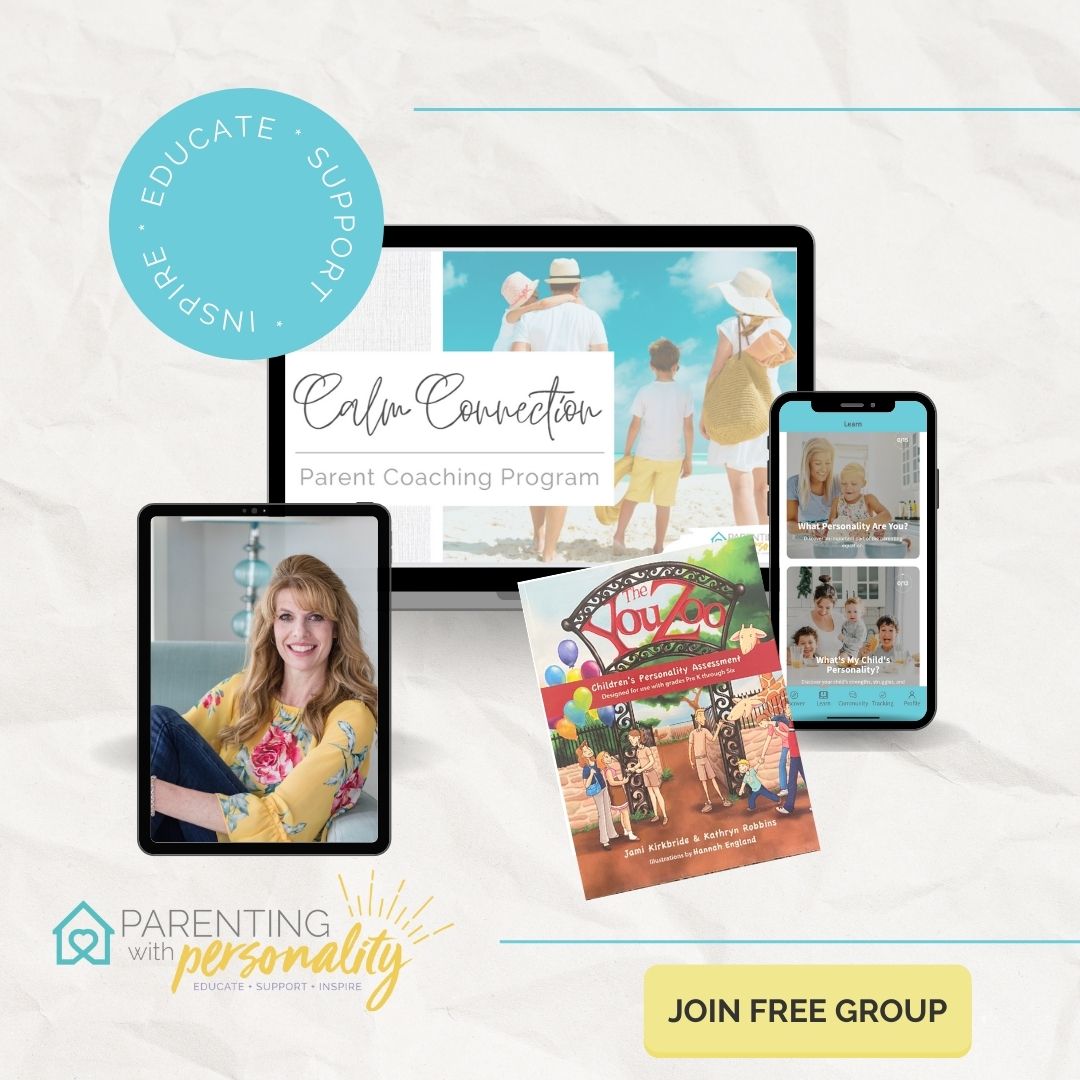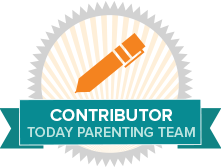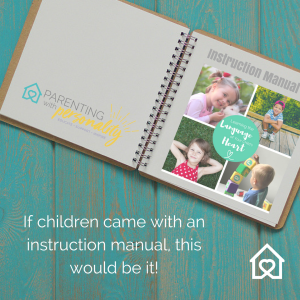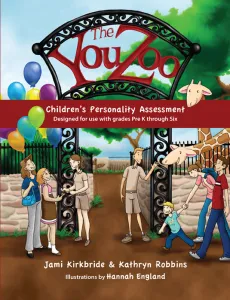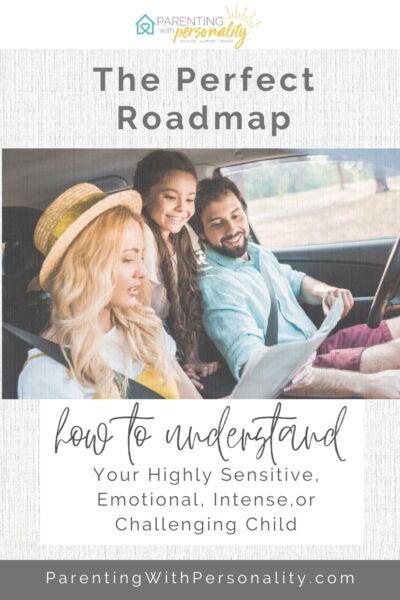
Have you been wondering what to do with your highly sensitive, intense, emotional child?
Over 50% of parents report feeling overwhelmed by their child’s big emotions. Often, that overwhelm happens because you don’t even know how to understand those meltdowns or where they come from. That’s where the perfect parenting roadmap can come in handy, to help you know how to understand your highly sensitive, emotional, intense, or challenging child.
We get stuck wondering things like, “Why does my child struggle with her emotions like this?” “What causes him to feel such big emotions?” or “What am I supposed to do with this mess of big emotions?”
When you’re unsure what to do, it’s hard to move forward.
Swap Meltdown Chaos For Meaningful Connection
The good news is, you can easily bring order to the chaos by learning to decode your child’s emotions, figuring out what’s behind them, and then learning how to navigate them while strengthening the connection with your child, rather than damaging it.
Highly Sensitive and Big Emotions
In this post, I’ll define highly sensitive and provide three avenues you might explore to better understand it. I hope that this will give you a roadmap so you can get started with figuring out your highly sensitive child and how to understand their highly sensitive and intense emotional responses and ultimately build a relationship where you child can know their emotions can be expressed safely and appreciated, even when different than yours.

How can I understand my highly sensitive, emotional, challenging child?
Are you experiencing a child who seems highly sensitive, highly emotional, intense, or challenging? Needing some help to navigate the challenging behaviors and big emotions?
Highly Sensitive and the MORE Factor
A highly sensitive child is one who usually feels things more deeply, more intensely, or for longer than the average person might. This child is likely very compassionate and self-aware, but at the same time can be exhausted from feeling all the things they feel, all the time. A child who is highly emotional may be highly sensitive or have other mental health issues overlapping that you need to understand.

What’s behind my child’s behavior?
A perfect strategy for approaching this comes from understanding what might be behind the intense emotion, challenging behaviors, and high sensitivity and develop a way to address the emotions and behaviors in a healthy and respectful way.
Highly Sensitive and the Related Factors
In other words:
You may need to examine if your child being highly sensitive, emotional, intense or challenging relates to:
- a personality trait, strength, struggle, or emotional need
- sensory processing needs or challenges
- possible mental health needs or issues
When you have a better understanding of the above three aspects, you can better understand how to empathize, address concerns, and problem solve what to do.
The Benefit to Figuring Out Challenging Behavior
The added benefit is that your child will begin to see that you care to understand them, their preferences, their concerns, their fears, and even their complicated, big emotions. They in turn, will start to build trust to share their thoughts, feelings, and fears. This can strengthen your relationship with your child and allow them to voice their needs and feelings more freely, rather than struggle alone with the intense feelings.
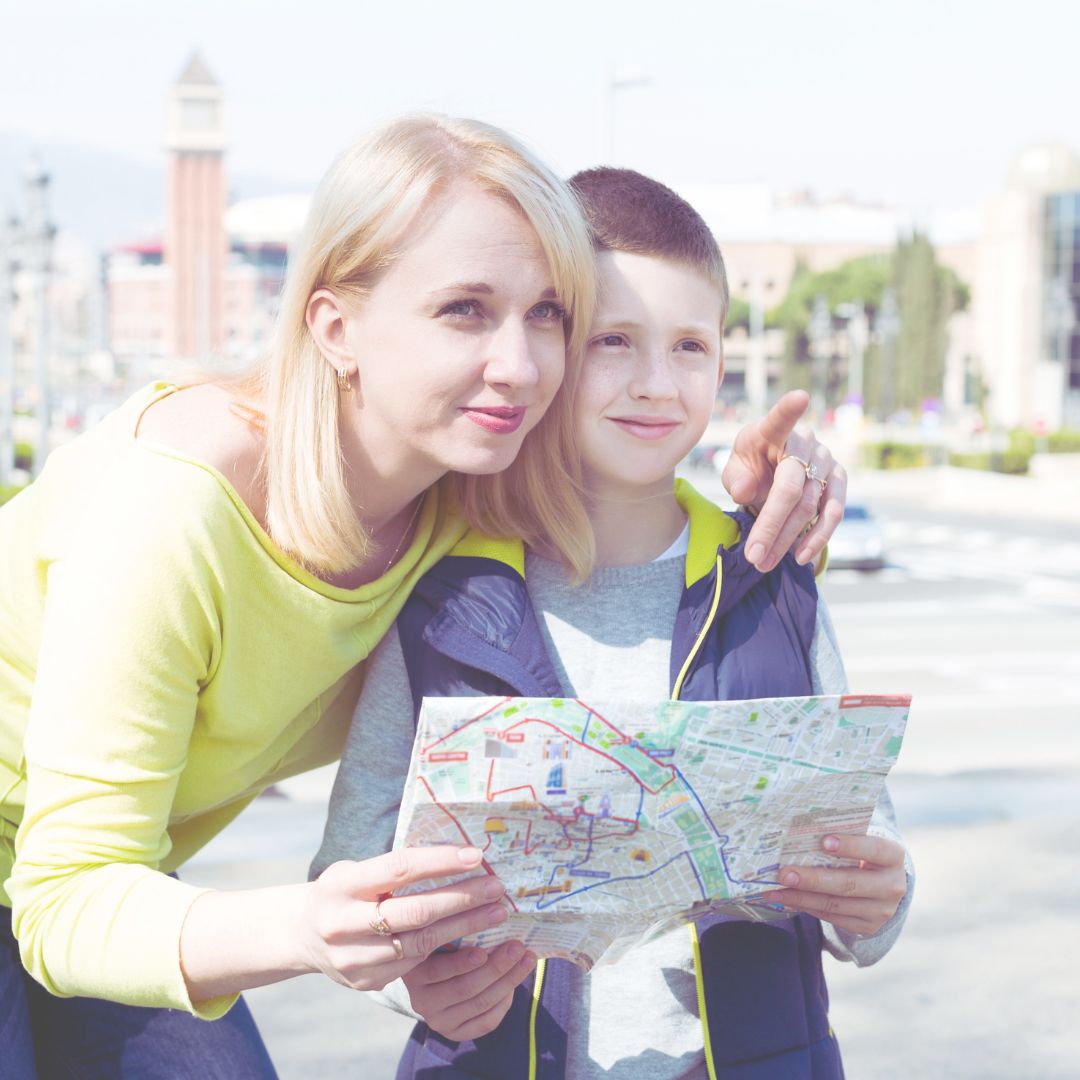
Child Personality – First Avenue in Exploring A Highly Sensitive or Challenging Child
Personality refers to the combination of an individual’s emotional, attitudinal, motivational, relational, and behavioral responses. It usually emerges first through temperament and as a child grows and develops. It helps explain why people do what they do, or maybe even why they don’t do what others perceive they “should.” It helps explain what makes a person tick.
This is a crucial component because some children tend to be more emotional by nature. Perhaps their personality takes in a lot of details as they observe and analyze a situation. They may spend a great deal of time in quiet settings, replaying the things they think, feel, or know. And if those thoughts or feelings tend to be based in worry or anxiety, it can accumulate into a real stress on them.
Realizing Personality Differences
Many people who are new to understanding a highly sensitive child start out on the right track but then get stuck because they don’t have similar emotions or feel overwhelmed by the intense emotions the child brings to the table. In frustration with not understanding it, they may unknowingly portray a frustration that the child internalizes and causes them to feel as though they are wrong or “in trouble” when in fact, it is just frustration with lack of understanding and feeling at a loss for what to do.
And then they wind up causing the child more frustration, anxiety, or upset when they are now juggling the original emotion as well as feeling like they have frustrated or upset a parent. And this can be part of why they tend to shut down or stop sharing their thoughts and feelings., because it can become a vicious cycle.

Responding to Your Child’s Personality
The key to understanding your highly sensitive child and navigating how to respond is to know your child’s personality. Know their strengths, struggles, and even those things they need emotionally. Your child’s behavior and emotions often escalate when these needs are not being met. Knowing this helps you respond in ways that help meet the need and encourage your child to open up, share freely, and feel understood.
You can tailor your communication style and words for their personality style to offer assurance and acceptance instead of judging or shaming. And this creates a safer environment for your child to process these big emotions without fear of getting in trouble or causing more upset.
To get started here, you might take the quick quiz found at ParentingWithPersonality.com. You might enjoy the Parent Personality Quiz to get some clues into what you might be. Then try out the Child Personality Quiz to learn what your child might be. If you would like more information, or something more in depth, you might enjoy the book I co-authored, The You Zoo. It is an interactive personality assessment in story form about monkeys in a zoo. Through the story, you can discover your child’s personality. This book is one of my favorite tools for parents. You can order this book on Amazon.

Sensory Processing Issues – Second Avenue in Exploring A Highly Sensitive or Challenging Child
Sensory processing is the process by which our brain and body takes in information and makes sense of or reacts to that information. A sensory system may have challenges in receiving or processing that information, causing a child to be sensory avoidant, sensory seeking, or actually vary between the two. As you might imagine, this can create both hypo and hypersensitivity in the way a child deals with sensory input and create challenges in their processing of sensory information their body receives.
If you’ve spent hours trying to explain concerning things to your child, preparing your worried child, or calming and reassuring your child, but something still feels off – like you’re not getting through to them or making progress , this could possibly be the piece that’s missing.
Without this, you can offer all the reassurance and great explanations to pave the way, keep your child from getting worked up, and still not make any progress in the areas that seem to cause them upset or emotion, and the two of you continue to battle and struggle to relate.

Learn About Sensory Processing
What can you do? Learn about sensory needs and difficulties.
Useful Tool To Understand the Highly Sensitive Child
A really useful tool for understanding your highly sensitive child is to take time to explore sensory issues– educate yourself on the sensory systems, how they are intended to work, and identify the systems that might be creating problems with your child.
I encourage you to think through those things that your child tends to be hypersensitive to. It may be sounds, sights, textures, tastes, movement, or a variety of other things. In fact, you may have never even realized that there are eight sensory systems that impact your child. (That’s more than what we learned about in elementary science!) The sensory red flag list might be worth exploring.
Believe it or not, many of the behaviors that parents and teachers contribute to defiance, obstinance, refusal, excessive energy, or avoidance may actually be tied to something that relates to the way a child is experiencing things through their senses and possibly even trouble in using that information like a neurotypical brain might. So don’t assume your child’s challenging behavior is necessarily behavioral problems, it just might be something you need to explore through sensory processing. Their sensory overload or overwhelm may contribute to the intense emotion or challenging behaviors that serve as their alarm.
Sensory Processing Resources
We talk about sensory issues more in the Calm Connection Program, and one resource I like to connect clients with is the book Understanding Your Child’s Sensory Signals (also on Amazon). Another great program is Rise With Sensory or Your Kids Table with Alisha Grogan. She is an occupational therapist that does periodic workshops specific to this topic and has a course dedicated solely to these issues. I personally have used her resources and learned so much from the ideas and insights she shares there.
Lemon Lime Adventures with Dayna Abraham is where I first learned about what sensory processing even was! Even as a mom of seven, I had never known. She has a book titled Sensory Processing 101 that beautifully explains the sensory systems and then talks about each of them through the eyes of a parent as well as an occupational therapist. If the whole topic is new for you, be sure to check it out! She also offers a program that helps out-of-the-box parents with their sensory-sensitive, out-of-the-box child. If Calm Connection doesn’t feel like a great fit with our faith-based aspect in coaching, her program may be a fit for you.
Exploring sensory issues can give you great insight into the help your child might need to manage their environment, sensory input, or needs. Knowing these specific details can help you brainstorm solutions to things that your child may not even be able to articulate without your understanding of how their body is interpreting the messages it receives (sensory input).

Mental Health Concerns-Third Avenue in Exploring A Highly Sensitive or Challenging Child
You may see your child experience mental health concerns from time to time, however, when those signs and symptoms are ongoing, cause frequent stress, and affect a child’s ability to function, it becomes a mental health disorder or illness.
Here’s where you’ll really start to notice the intensity of these reactions or responses that become stronger and more unpredictable. This may be an important and necessary piece of the roadmap in exploring and understanding your highly sensitive child and his big emotions.
Track the Challenging Behaviors and Meltdowns
Of course, this avenue can take some time to explore, research, and investigate with the help of mental health professionals. Consider doing your homework prior to visiting a doctor or counselor to know what signs and symptoms might be showing in your child. Track and write down your thoughts, concerns, patterns of behaviors you have noticed, and questions prior to your appointment.
Pursuing Help For Highly Sensitive, Intense, or Challenging Behaviors
The process you can use to have your child evaluated for mental health issues may include:
- Visit a counselor to discuss what you are noticing or concerned about
- Schedule a visit with pediatric doctor about any medical issues that may be contributing
- Testing with a psychologist for further information on possible diagnosis

Consulting a Doctor For Child Mental Health
Then, in order to get any kind of medication for mental health concerns, you may be asked to consult a doctor, psychologist, or psychiatrist who specializes with a variety of mental health issues and treatments and will know the specific combinations that might be most effective if necessary to medicate.
Once you’re done, you’ll be well on your way to understanding and perhaps even managing, how this mental health issue may be contributing to the issues you are concerned about with your highly sensitive child.

Putting It All Together–Understand Your Emotional, Intense, or Highly-Sensitive Child
Roadmap for Understanding the Highly Sensitive, Intense, or Challenging Child
There you have it! The perfect roadmap for exploring 3 important avenues to better understand
your highly sensitive, emotional, intense, or challenging child.
It may sound like a lot, but like most things… practice makes perfect. Just focus on becoming a student of your child, watching their behaviors and responses, learning to hear what they are trying to articulate, and keeping an open mind to see (and even feel) things from their perspective. This will help you learn to identify those things that cause them to experience anxiety, upset, avoidance, emotional dysregulation, or intense emotions.
When you take the time to understand these things in their world, you are communicating that you care and want to understand them. Ultimately, that’s one of the loudest ways you can love your child. This is what can build, strengthen, and even transform a relationship.
Understanding your highly sensitive, emotional, intense, or challenging child is a journey, but it’s well worth the effort. By decoding their emotions and addressing their unique needs, you can build a deeper connection with your child and help them thrive emotionally.
Remember, if you’re feeling overwhelmed, that you now have the perfect roadmap for understanding your highly sensitive, emotional, or challenging child. Take time to explore personality, sensory needs, and mental health…and watch your relationship with your child flourish! And more than anything, remember: You are NOT alone! There are many parents on this journey! I promise. It’s just not an area that we all throw out in our parenting groups, since people can so easily feel judged. Make sure you get a steady form of support on this journey!

Understanding A Highly Sensitive, Emotional, or Challenging Child
Get Your Quick Start Guide and Parenting Tips
If you need help getting started, you might want to check out the Calm Connection Parent Program. This tool can help you understanding your highly sensitive, emotional, intense, or challenging child and will help you gain some clarity and insight in the three areas discussed here. You can begin to understand your child, communicate with your child, and problem solve those things that are impacting your child…in effective ways.
This can help you make a difference in the life of a child…your child! You can begin to transform not only the relationship you share with your child, but your entire family!
You might enjoy the Quick Start Guide: Calming Emotional Chaos Without Crushing Your Connection that I put together recently. This guide helps break down some of the very things discussed here. You will find useful checklists and practical tips that can guide you in understanding your child and his unique wiring and needs!
At-A-Glance:
- Many parents feel overwhelmed by their child’s big emotions, but learning to decode those emotions and understand their underlying causes can help strengthen the parent-child relationship.
- Highly sensitive children often feel things more deeply, intensely, or for longer periods than others. Understanding the underlying causes of their intense emotions is key to addressing them in a healthy way.
- Exploring your child’s personality, sensory processing needs, and possible mental health issues are three avenues to understanding their intense emotions.
- Personality is an important component in understanding a highly sensitive, emotional, intense, or challenging child.
- Sensory processing issues can also contribute to a child’s intense emotions, as they may have challenges in receiving or processing sensory information.
- Mental health issues like anxiety or depression may also play a role in a child’s emotional intensity and sensitivity, and seeking professional help may be necessary in some cases.
I’m here to help you figure out your child, and all their unique little mysteries, so you can fully love, genuinely understand, and truly connect with them. I know you want to help your child to be all God created them to be, and in order to do that well, you might need to arm yourself with some good support and practical tools! I’ve got some good ones to share!
Book a call so we can figure out a roadmap for you and your family. I’d love to connect with you and see how I might support you in your parenting journey! And I’d love the chance to see if you are a good fit for the Calm Connection Parent Program. Many families are receiving the support and guidance they have searched long and hard to find! You can too!
If you’d like to hear more and experience some helpful support and encouragement, be sure to check out the online Parenting With Personality Facebook Group! I share more details about all three of these avenues there, and I provide some useful tips and tools you’ll want to learn about for your parenting journey!
This topic often gets parents thinking about the issues their child might be facing. I’d have to admit, that most often, parents are concerned about ADHD. You might enjoy reading this past article on Ten Things Everyone Should Know About ADHD. It might clarify some things for you!
Until next time,
XXX

P.S. Looking for that short-cut to getting started? I’ve got you! Get your Quick Start Guide right now! This will give you some things to consider as you start putting the pieces of your child’s puzzling emotions or behaviors together! It’s a tool you won’t want to miss out on! Get it NOW!

With expertise, and wisdom gained from raising seven wonderful children, and a background in counseling, Jami, a dedicated parent coach, speaker, and author, offers valuable insights and practical guidance to empower parents on their unique journeys of raising children. Founder of Parenting With Personality and creator of Calm Connection Parent Coaching Program, she equips parents with the tools and strategies they need to foster a better understanding and meaningful connection with their little ones. As a regularly featured guest on Channel Mom Radio, her relatable stories and humorous anecdotes bring laughter and inspiration to listeners, making parenting an enjoyable and fulfilling adventure. Join Jami on this incredible journey and discover a world where connection, laughter, and growth abound, even in a bustling and busy household. Her writing has been featured with MOPS International, CBN.com, and Today Parenting.

